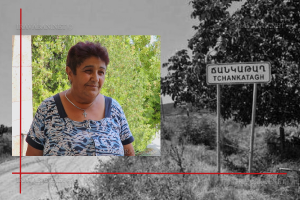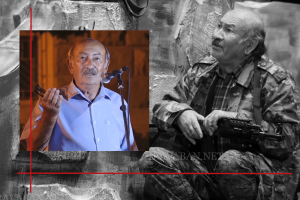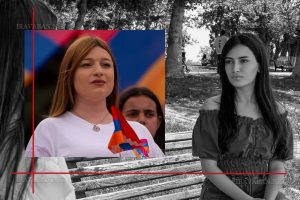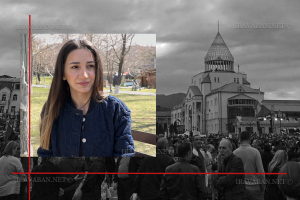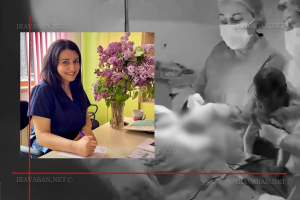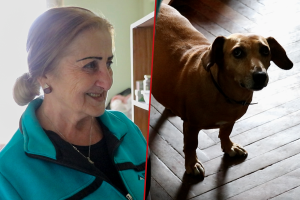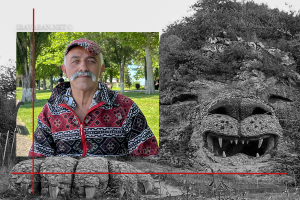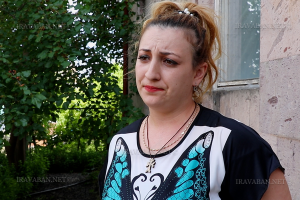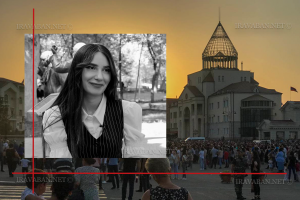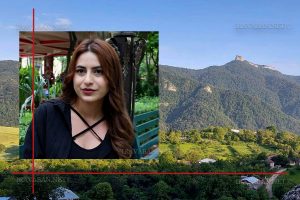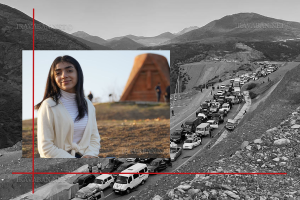Hasmik Aleksanyan, who was forcibly displaced from the occupied Republic of Artsakh, told in the framework of “Artsakh: Armenian Genocide 2023. Stories of Survivors” documentary project, about the difficulties of the siege and the consequences of the last attack. Our hero was born in Kaghartsi village of Martuni region.
During the 2020 war, she was pregnant when they were forced to leave Stepanakert. They returned to Artsakh on 15 November, when they learned that peacekeepers were deployed there.
“We were afraid, especially since we had minor children at home, but we also thought that we should stay at home, Artsakh should not be depopulated. We lived in fear, the shots could be heard very clearly from our house, and the gas was cut off during the day. It was very difficult to live in the conditions of the blockade, it is true, now we are longing for those days. We were in our home, we were in our motherland. We all helped each other, we shared what we had, and we ate food moderately. It was especially difficult for children. There was not sweet. They didn’t understand much, we said that they there are no goods to the stores, but my son understood everything, but he did not speak,” our interlocutor said.
According to her, they were at home during the war in 2023, but they were tense. They had been waiting in line for bread for several days.
“I sent my son to school in the morning. It was after 12 o’clock when the first shots were heard: some was barefoot, some half-dressed, we were all mixed. My husband immediately went to take the child from school, but did not find him. I also took my baby and we entered the basement. I didn’t hear from my son until late in the evening. Only then my husband came with the child. We stayed in the basement that night, it was a very bad day,” Mrs. Hasmik says.
She says that at first they decided not to leave Artsakh: that was the Azerbaijanis’ goal, and that was how they acted to depopulate Artsakh.
“Then we were told that the enemy had entered Stepanakert, we were already in a state of despair. There were no conditions to stay, we decided to leave. We were afraid on that way, the enemy opened door of our car at the checkpoint, and they asked how many of us there were. We left our home in Artsakh and did not take anything with us. We also have a problem with the place of residence in Armenia, the rent is very expensive. We have not found a job yet, everything is difficult,” our interlocutor said.
Ms. Hasmik states that they are considering returning to Artsakh only if no Azerbaijanis will be there.
Iravaban.net seeks help from citizens who will voluntarily agree to translate materials into different languages: Russian, English, French, Arabic, Persian, Turkish, Georgian, Chinese…
You can write to our e-mail address at: [email protected]
To donate for realization of the project: https://iravaban.net/en/become-a-supporter
Armenian Lawyers’ Association is the author of the idea “Artsakh: Armenian Genocide 2023. Stories of Survivors” documentary project of Iravaban.net and is the owner of copyright of the materials created within the framework of the project. In case of using the materials produced within the framework of the project, it is necessary to obtain the written permission of the Armenian Lawyers’ Association.
Details in the video.
Hasmik Sargsyan

